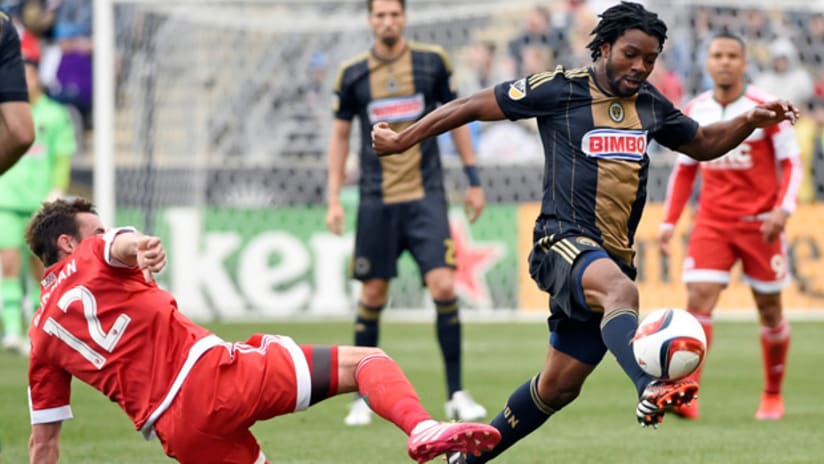When Michael Lahoud was six years old, his world was turned upside down.
The Philadelphia Union midfielder was pulled out of his Sierra Leone school by his grandmother, whisked to the airport by his uncle and put on a plane – by himself – with a final destination in the US. The lone member of his village to be granted an emergency visa before a civil war exploded in his home country, Lahoud was headed to Washington D.C., where he’d reunite with his mother, who he hadn’t seen since she took a job in the States when he was just a toddler.
A life that had once been simple was forever changed; Lahoud left behind everything and everyone he knew to start fresh. He was a refugee in an unfamiliar place; more than that, he was a kid in need of a friend.
After some struggles, Lahoud found that friend, a schoolmate named Jack Wolf. With Wolf, Lahoud would start a promising soccer career in the Virginia suburbs of D.C., eventually making his way to Wake Forest before joining Chivas USA as a first-round SuperDraft pick in 2009.
His story, however, doesn’t end there. After two decades in the US, Lahoud began to reconnect with his home country in 2010. No longer the typical 23-year-old American, he committed to helping out in Sierra Leone, leading the charge – along with Columbus Crew SC forward and fellow Sierra Leone international Kei Kamara – to build a school in his native Freetown and raising funds to combat the Ebola outbreak in the West African nation last year.
Lahoud, who opened his school with Kamara and Schools for Salone earlier this month, recently wrote about his remarkable journey for The Players’ Tribune, a website founded by former New York Yankees star Derek Jeter to provide pro athletes with their own platform. It’s a story about the plight of refugees, the terrible effects of war and the ability of individuals to inspire. More than anything, Lahoud’s story is about kindness.
“What do we want to be as a society?” he writes at the end of his piece. “Do we want to groan and turn away from those who need our help? Or do we want to run towards them with our hand outstretched, saying, ‘Hey, we should be friends?’”
“It’s a lot harder to be Jack Wolf. But thank God for fools like him.”














